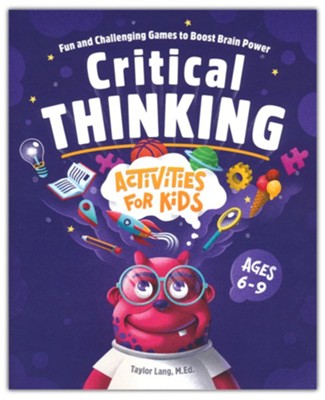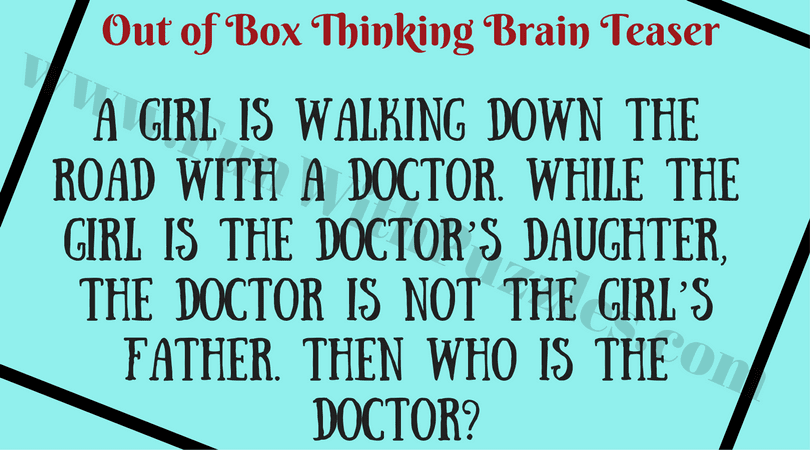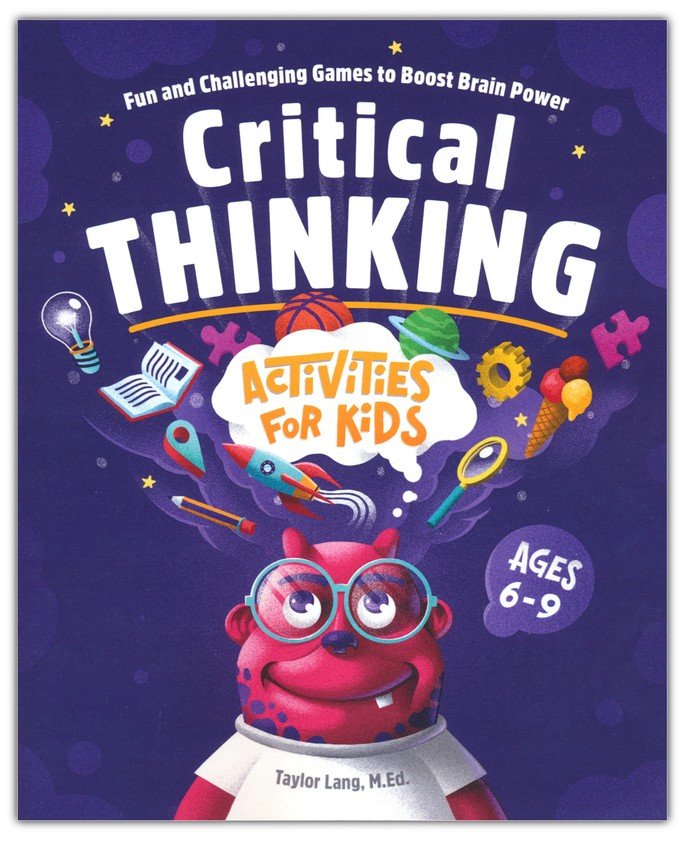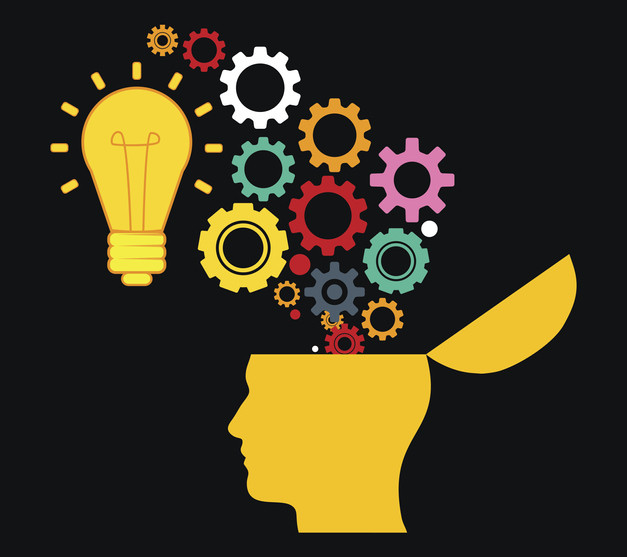In this article, we will explore how brain games can enhance your critical thinking skills. By playing these games, you will develop your ability to analyze and solve problems, think more creatively, and improve your decision-making skills. We will dive into various types of brain games and provide you with practical tips on how to incorporate them into your routine. Get ready to challenge your mind and enhance your cognitive abilities with these fun and engaging activities!
What is Critical Thinking?
Defining critical thinking
Critical thinking is the process of analyzing and evaluating information and situations in a logical and systematic manner. It involves the ability to question assumptions, reason objectively, and make informed decisions. Critical thinking is a valuable skill that is applicable to all aspects of life, whether it’s solving complex problems, making sound judgments, or fostering creativity and innovation.
Importance of critical thinking
Critical thinking is a crucial skill in today’s fast-paced and complex world. It allows individuals to navigate through the barrage of information and make sense of it. By critically analyzing information, we can identify biases, challenge preconceived notions, and separate fact from fiction. This skill is particularly important in this age of misinformation and fake news.
Moreover, critical thinking enables individuals to solve problems more effectively. It encourages us to explore different perspectives, consider alternative solutions, and evaluate the potential consequences of our decisions. By thinking critically, we can make well-informed choices and avoid cognitive biases that may cloud our judgment.
The Benefits of Enhancing Critical Thinking
Enhanced problem-solving abilities
Brain games are a fun and effective way to enhance critical thinking skills. These games challenge your cognitive abilities and encourage you to think outside the box. In solving puzzles or riddles, you need to analyze the problem, break it down into smaller components, and come up with creative strategies to find a solution. These skills can be transferred to real-world situations where you encounter complex problems that require critical thinking.
Improved decision-making skills
By engaging in brain games regularly, you can improve your decision-making skills. These games often present you with various scenarios that require quick thinking and analysis. They encourage you to consider multiple factors, evaluate the pros and cons, and make informed choices. As you practice making decisions in a controlled and challenging environment, you develop the ability to make better decisions in real-life situations.
Increased creativity and innovation
Brain games stimulate your brain by presenting you with novel and unexpected challenges. They push you to think creatively and come up with innovative solutions. By engaging in these games, your brain becomes more flexible and adaptable, allowing you to approach problems from different angles and find unique solutions. This enhanced creativity can be applied not only to problem-solving but also to various other aspects of life, such as art, writing, and business.
Understanding Brain Games
Definition and purpose of brain games
Brain games, also known as cognitive training games, are designed to exercise your brain and enhance cognitive functions such as memory, attention, problem-solving, and decision-making. These games come in various formats, including puzzles, riddles, memory games, and logic challenges. The purpose of brain games is to stimulate the brain, improve cognitive abilities, and enhance critical thinking skills.
Types of brain games
There is a wide variety of brain games available, catering to different interests and preferences. Puzzle games, such as Sudoku and crossword puzzles, challenge your logical thinking and problem-solving skills. Memory games, such as matching cards or sequence recall, improve your ability to remember information. Strategy games, such as chess or strategy-based video games, enhance your analytical and decision-making skills. Each type of brain game focuses on different aspects of cognitive function, providing a holistic approach to brain training.
How brain games stimulate the brain
Brain games stimulate the brain by presenting challenges that require you to think critically and creatively. These games activate various regions of the brain, including the prefrontal cortex, which is responsible for executive functions like planning, decision-making, and problem-solving. As you engage in brain games, neural pathways are strengthened, and new connections are formed, improving cognitive functions and enhancing critical thinking abilities.
Research on Brain Games and Critical Thinking
Studies linking brain games to improved critical thinking
Numerous studies have explored the relationship between brain games and critical thinking skills. One study conducted by the University of California, Berkeley, found that individuals who regularly played brain games showed improvements in problem-solving abilities, memory, and cognitive flexibility. Another study published in the Journal of Aging and Mental Health concluded that brain games have a positive impact on older adults’ cognitive functions, including critical thinking and decision-making.
Evidence of brain games’ effectiveness
Research has provided evidence of brain games’ effectiveness in enhancing critical thinking skills. A study published in the journal PLOS ONE found that individuals who engaged in brain games for at least 30 minutes a day over several weeks showed significant improvements in their ability to think critically and solve complex problems. Another meta-analysis published in the Journal of Cognitive Enhancement concluded that brain games have a moderate effect on cognitive functions, including critical thinking.
Critiques and limitations of research
While there is promising research indicating the benefits of brain games, some critiques suggest that the effects may be limited. Some argue that the improvements witnessed in brain games are likely to be specific to the tasks practiced, rather than transferring to other critical thinking skills. Additionally, the long-term effects of brain games and their impact on real-life critical thinking scenarios still require further investigation.

Choosing the Right Brain Games
Identifying personal interests and goals
When choosing brain games, it is essential to consider your personal interests and goals. Select games that align with your preferences, as you are more likely to engage in them consistently. If you enjoy mathematical challenges, Sudoku or number puzzles may be suitable for you. If you prefer language-based tasks, crossword puzzles or word games may be more appealing. By selecting games that resonate with you, you will enhance your critical thinking skills while enjoying the process.
Considering different game formats and platforms
Brain games are available in various formats and platforms. You can find physical puzzle books, online games, mobile apps, and even virtual reality brain games. Consider the format that suits your lifestyle and preferences. Physical puzzle books may be convenient for those who prefer offline activities, while mobile apps offer flexibility and accessibility. Explore different platforms and experiment with different game formats to find what works best for you.
Evaluating user reviews and expert recommendations
To ensure the quality and effectiveness of brain games, it is beneficial to evaluate user reviews and seek expert recommendations. Read reviews from other individuals who have tried the games to get insights into their experiences. Look for reputable websites or publications that provide expert opinions and recommendations on brain games. By considering the experiences and advice of others, you can make more informed decisions about which brain games to incorporate into your routine.
Incorporating Brain Games into Daily Routine
Creating a brain game schedule
To make brain games a regular part of your routine, creating a schedule can be helpful. Set aside dedicated time each day or week to engage in brain games. Whether it’s early morning, during your lunch break, or before bed, find a time that suits your schedule and stick to it. Consistency is key to reap the full benefits of brain game training.
Finding time for brain games
If time is a constraint, look for opportunities to incorporate brain games into your daily activities. For example, you can solve a crossword puzzle during your commute or play a memory game while waiting in line. These short bursts of brain game sessions can be just as effective in improving critical thinking skills. By integrating brain games into your daily routine, you can make the most of your available time.
Combining brain games with other activities
To maximize the benefits of brain games, you can combine them with other activities that promote critical thinking. For instance, you can engage in discussions or debates with friends or colleagues, encouraging diverse perspectives and analytical thinking. Reading thought-provoking books, solving real-life puzzles, or taking up a new hobby that challenges your cognitive abilities can also complement the effects of brain games. By incorporating various activities, you can reinforce your critical thinking skills and apply them to different contexts.

Developing Transferable Skills from Brain Games
Applying critical thinking skills outside of brain games
One of the key objectives of engaging in brain games is to transfer the critical thinking skills developed in-game to real-life situations. Practice applying these skills beyond the virtual realm by actively seeking opportunities to think critically in everyday life. Analyze problems, evaluate options, consider different perspectives, and make informed decisions in various scenarios. By continuously exercising critical thinking skills outside of brain games, they become ingrained in your thinking process.
Identifying real-life problem-solving scenarios
To enhance critical thinking, identify real-life problem-solving scenarios that require analysis and evaluation. This can include work-related challenges, personal decision-making, or community issues. Break down complex problems into manageable parts, evaluate information, generate alternative solutions, and carefully consider the consequences of your decisions. By practicing critical thinking in relevant situations, you can hone your problem-solving abilities and improve your overall critical thinking skills.
Continuous learning and development
Critical thinking is not a one-time skill but an ongoing process of growth and development. Embrace a mindset of continuous learning by seeking new challenges and opportunities for personal development. Engage in brain games that progressively increase in difficulty to keep pushing your cognitive abilities. Explore new topics, read books on different subjects, and engage in intellectual discussions. By continuously seeking growth, you foster a lifelong commitment to enhancing your critical thinking skills.
Challenges and Solutions in Enhancing Critical Thinking through Brain Games
Overcoming boredom and repetition
Engaging in brain games regularly can sometimes lead to boredom or repetitive experiences. To overcome this challenge, explore different game formats, switch between various types of brain games, and try games with increasing levels of difficulty. Additionally, consider playing brain games with others or participating in competitions to add a social aspect and bring excitement to the experience. By diversifying your brain game activities, you can keep challenging yourself and maintain engagement.
Maintaining motivation and engagement
Consistency is crucial in reaping the benefits of brain games. However, staying motivated and engaged in the long term can be challenging. To address this, set goals and track your progress to stay motivated. Celebrate milestones and achievements to maintain a positive mindset. Additionally, consider joining online communities or forums where you can interact with like-minded individuals and share experiences. By connecting with others who have similar goals, you can find support, encouragement, and inspiration along your journey.
Seeking new challenges and game variety
As you progress in your brain game training, you may find that the games become easier or repetitive. To continue enhancing your critical thinking skills, seek new challenges and explore different game varieties. Look for brain games that focus on specific cognitive functions you wish to improve or try games from different developers or platforms. By continuously seeking new challenges, you can ensure that your brain game training remains effective and stimulating.

Monitoring Progress and Assessing Improvement
Setting measurable goals
Setting measurable goals is essential in tracking your progress and assessing improvement. Identify specific areas of critical thinking you wish to focus on, such as problem-solving or decision-making. Determine measurable objectives, such as solving a puzzle within a certain time limit or achieving a specific score in a memory game. Regularly evaluate your performance against these goals to measure improvement and identify areas for further development.
Tracking performance and achievements
Keep a record of your performance and achievements in brain games. Track your scores, completion times, or level advancements to monitor your progress over time. Additionally, note any significant improvements you observe in your critical thinking abilities, such as enhanced problem-solving skills or increased creativity. By maintaining a record of your achievements, you can reflect on your growth and motivation to continue with brain game training.
Seeking feedback from peers or instructors
To gain external perspective and insights, seek feedback from peers or instructors. Engage in discussions with others who have similar interests in brain games or critical thinking. Share your experiences, challenges, and successes, and ask for constructive feedback. Additionally, consider participating in workshops or courses that focus on critical thinking skills. By interacting with others and receiving feedback, you can gain valuable insights and further improve your critical thinking abilities.
Conclusion
Enhancing critical thinking through brain games is a rewarding and enjoyable journey towards lifelong learning and growth. By engaging in brain games regularly, individuals can develop enhanced problem-solving abilities, improved decision-making skills, and increased creativity and innovation. Research has shown the positive effects of brain games on cognitive functions, including critical thinking. By choosing the right brain games based on personal interests and goals, incorporating them into daily routines, and seeking transferable skills, individuals can reap the full benefits of brain game training. Challenges in maintaining motivation and engagement can be overcome by seeking new challenges, diversifying game formats, and joining supportive communities. By monitoring progress, setting measurable goals, and seeking feedback, individuals can track their improvement and continue their journey towards enhancing critical thinking skills. Embrace the power of brain games and unlock your full potential in critical thinking, continuously fostering a mindset of growth and development.


